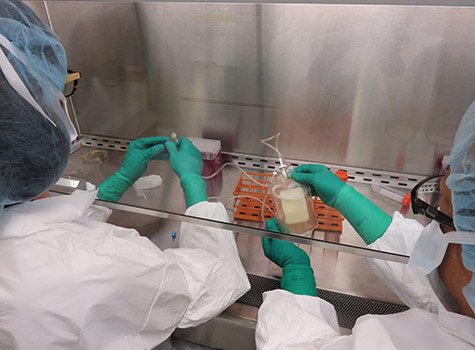There were 114 million of them at last count, more than double a 2010 estimate. Numbers are surging because of changing diets and lifestyles, and a genetic susceptibility to the metabolic disease. Once the top scientist in China with Swiss drugmaker Roche Holding AG, Chen is developing a new treatment for diabetes, which he says afflicts Chinese when they’re younger and thinner than Caucasians.
The unique features of China’s epidemic mean new weapons are needed to fight it, according to Chen. He’s part of a growing wave of
«For too long, innovation in China has meant a ‘me too’ drug," said Chen, who worked at Roche’s New Jersey research labs before returning to his home country in 2004. «China has no choice but to develop novel drugs, and it will need to be for something that attacks the nation in masses like diabetes or cancer.»
Chen’s company, Hua Medicine Ltd., has raised $46 million since 2010 from some of the most prominent U.S. and China biotechnology investors. Venture capitalist Robert Nelsen, who is a
Glucose Control
Nelsen’s ARCH Venture Partners was one of Receptos’s early investors, he says, and the returns were among his most lucrative. «Receptos is a good comparison to the value that will be created if the drug works in a large market, but we obviously have to wait for the data," Nelsen said.
One of Hua’s most advanced experimental medicines is HMS5552. The
Hua licensed the compound from Basel,
Drugs targeting the glucokinase activator mechanism represent a new approach in diabetes, treatments for which Bloomberg Intelligence estimates will reach $55 billion in sales by 2018.
Lilly Rival
Eli Lilly & Co., based in Indianapolis, announced last year a partnership with
«The collaboration with Yabao is one of the important steps in growing our diabetes footprint," Lilly spokeswoman Teresa A. Shewman said in an
Early
Inadequate Control
Drugs such as metformin and Sanofi SA’s Lantus, the world’s best selling diabetes drug, are routinely used in North America and Europe. In China, these therapies effectively control the disease in fewer than half of cases, Chen estimates.
Large variations in
If successful in China, Hua would seek to make the drug available across Asia, and as a complementary therapy in North America and Europe, he said.
China’s government has invested heavily in biotechnology, and the investments are starting to pay off, said Elizabeth Krutoholow, a biotech analyst at Bloomberg Intelligence in New York. The value of the industry output’s increased 20 percent to 3.16 trillion yuan ($509 billion) in 2014, the official Xinhua News Agency reported last week.
Hua’s drug has been granted «green channel» status by China’s Food and Drug Administration, which is similar to the
Hua Medicine receives grants from the government to support research and development. «We don’t want to be another Western company opening a China office," Nelsen said. «The government is very interested in seeing Chinese develop drugs that solve Chinese health problems, and to do that would be a huge victory.»
by Natasha Khan
http://www.bloomberg.com/news/articles/
